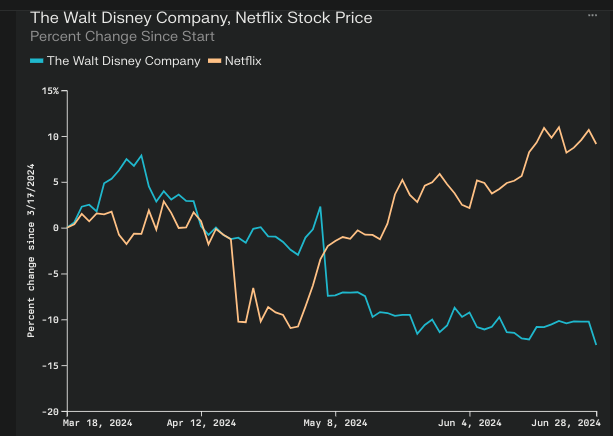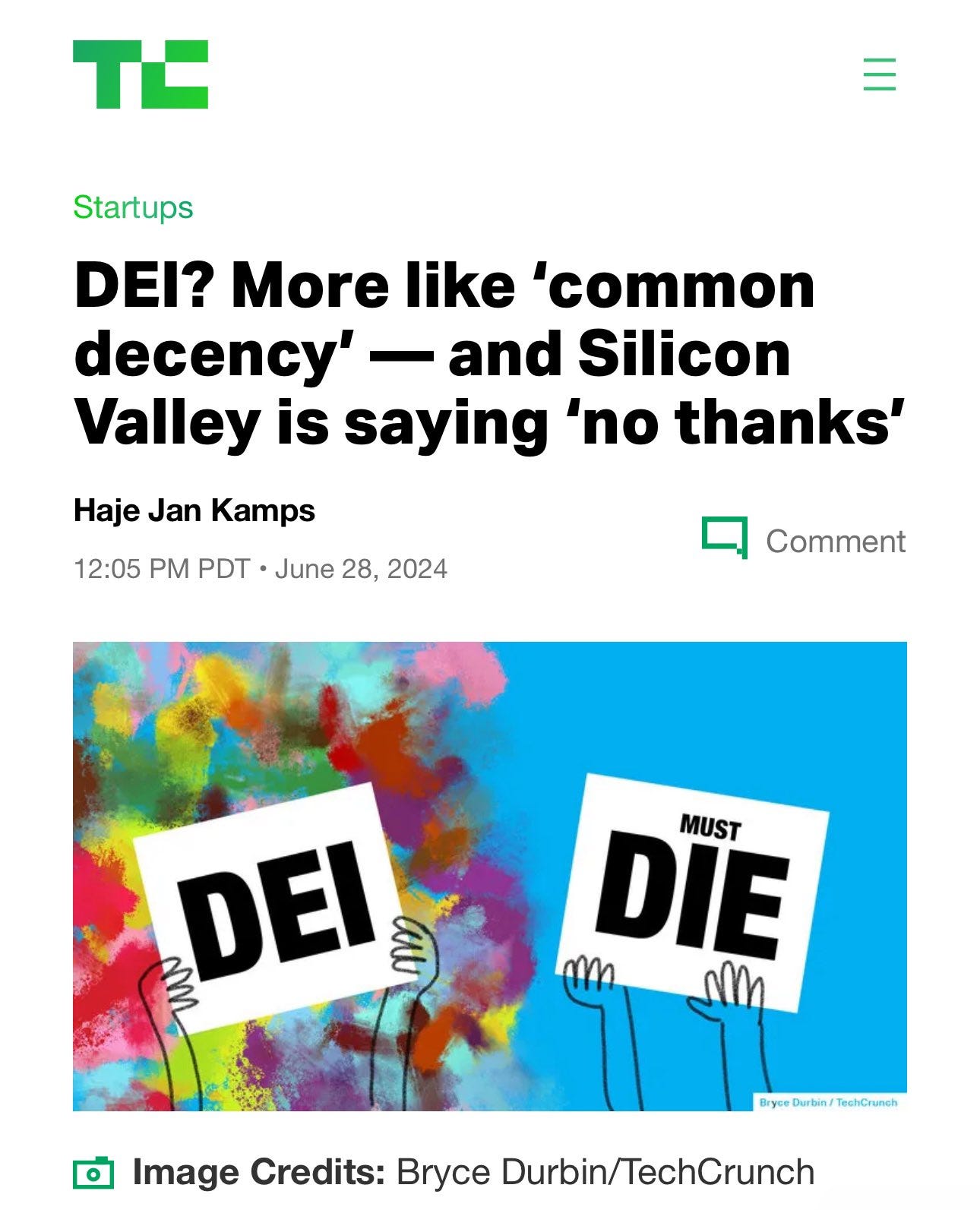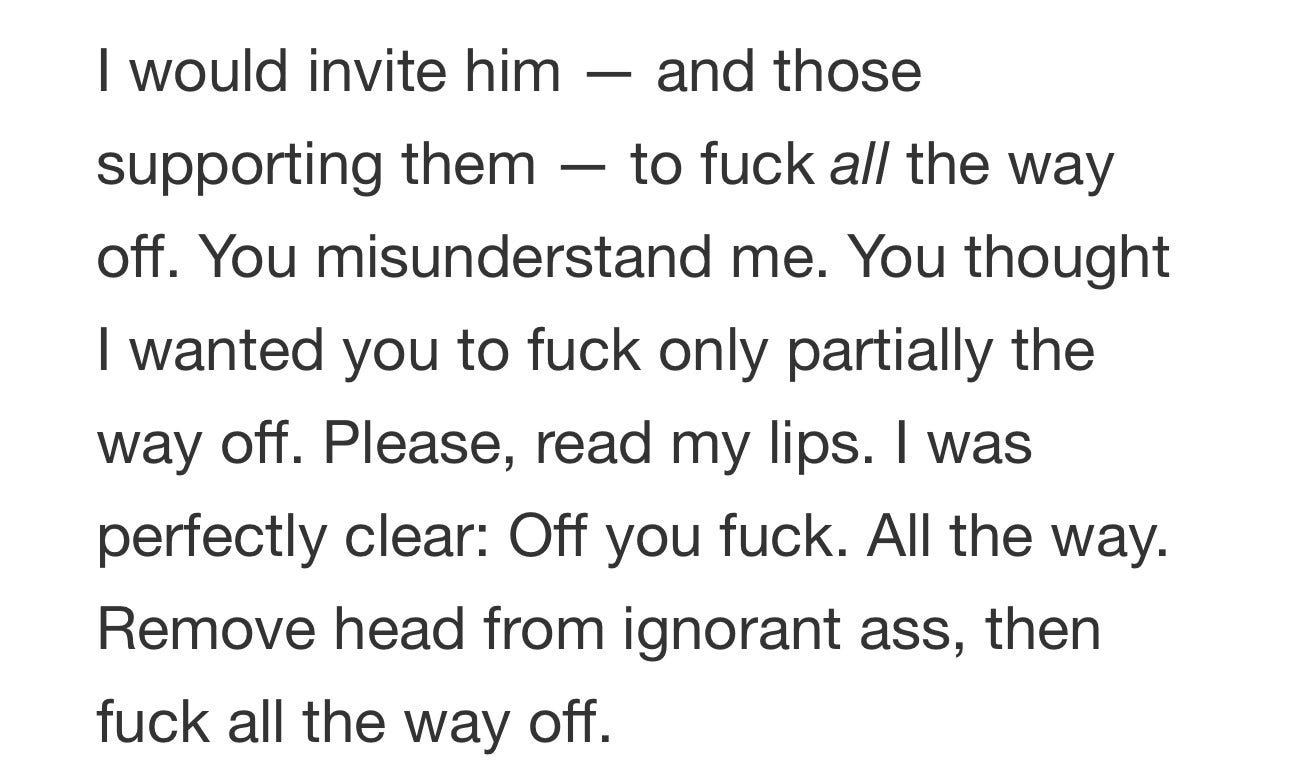Culture
The Most Important Intangible of any Company
Ironically one of the first things you learn when you run an engineering organization is that a good quality assurance organization cannot build a high-quality product, but it can tell you when the development team builds a low quality product.
Similarly, a high quality human resources organization cannot make you a well-managed company with a great culture, but it can tell you when you and your managers are not getting the job done.
-Ben Horowitz, The Hard Thing About Hard Things
“All happy families are alike; each unhappy family is unhappy in its own way.”
—Leo Tolstoy, Anna Karenina
Culture is the most important intangible any company can have. You can have everything in place:
A killer product
A blue ocean market
Cash flow positive // years of runway
User hype and engagement
But if your culture reeks of politicking, burnout and broken promises, you won’t be able to retain employees, and eventually your product or service will suffer.
And if your product starts to suck, this will lead to a cascading effect of disappointing users and consumers, which will spread via word of mouth and eventually drive your company into the ground.
What went wrong? Your culture, that’s what.
Happy Families
So what is it that causes some companies to be great places to work, providing meaning, purpose and financial success, and others to be burnout-factory hell holes?
Politics
What do I mean by politics?
I mean people advancing their careers and agendas by means other than merit in contribution.
A CEO creates politics by encouraging and sometimes incentivizing political behavior, often unintentionally.
To have a good culture, you have to:
Hire people with the right kind of ambition.
The surest way to turn your company into the political equivalent of the U.S. Senate is to hire people with the wrong kind of ambition.
As defined by Andy Grove, the right kind of ambition is ambition for the company's success with the employees's own success only coming as a by-product of the company's victory.
The wrong kind of ambition is ambition for the employee's personal success regardless of the company's outcome.
Every time your company gives someone a promotion, everyone at that person’s organizational level, evaluates the promotion and judges whether merit or political favors yielded it.
If the latter, then the other employees generally react in one of three ways.
They sulk, feel undervalued, and morale plummets
They outwardly campaign against the person, and undermine them in their new position
They attempt to copy the political behavior that generated the unwarranted promotion, leading to a reduction of productivity
It is particularly important that managers have the right kind of ambition, because anything else will be exceptionally demotivating for their employees.
As an employee, why would I want to work long hours to advance the career of my manager? If the manager cares more about his career than the company, then that's what I'd be doing.
Law of Crappy People
The Law of Crappy People states: For any title level in a large organization, the talent on that level will eventually converge to the laziest and least competent person with the title.
The rationale behind the law is that the other employees in the company with lower titles will naturally benchmark themselves against the crappiest person at the next level.
For example, if Jasper is the worst vice president in the company, then all of the directors will benchmark themselves against Jasper and demand promotions as soon as they reach his low level of competency.
The best that you can do to mitigate the Law of Crappy People is only promote based on results and merit, because that mitigation will be critically important to the quality of your company.
Dogs at Work and Yoga Aren’t Culture
Startups today do all kinds of things to distinguish themselves. Many great, many original, many quirky, but most of them will not define the company's culture.
Yes, yoga may make your company a better place to work for people who like yoga. It may also be a great team exercise for people who like yoga. Nevertheless, it's not culture.
It will not establish a core value that drives the business and helps promote it in perpetuity. It is not specific with respect to what your business aims to achieve. Yoga is a perk.
Every smart company values its employees. Perks are great, but they are not culture.
MEI
So what do all these things have in common?
They are based around the principles of meritocracy. How can we put the best people into places where they will succeed in maximizing positive results, while at the same time, avoiding group think and stagnation?
This is how we might define an effective company culture, and it is something that most, if not all, successful companies have in common.
When it comes to diversity and inclusion, we can all agree that an inclusive workplace is far preferable to one that is cliquey, because it boosts moral and teamwork.
And diversity is also a positive sum force toward achieving your company goals. But let’s double click on that. Why is diversity a good thing?
Diversity is effective because when you have people from different backgrounds and fields, with different life experiences, they will bring vast amounts of cognitive diversity to your workplace.
As a result, this will reduce group think in your organization and lead to more innovative solutions.
But here is the caveat: if you are hiring people who look different, but think the same way, you will not increase the amount of cognitive diversity in your organization. In fact, your organization will become less inclusive, and your culture more resistant to any opinions that deviate from the consensus.
One has to look no further than James Damore, who was a software engineer at Google, to see this play out in action.
Damore wrote a memo called: “How bias clouds our thinking about diversity and inclusion.”
In this memo, Damore criticized what he called Google's "ideological echo chamber" and suggested that Google's diversity efforts were discriminatory against conservatives.
The memo went viral, both within Google and publicly, leading to intense debate and backlash.
Google's CEO, Sundar Pichai, stated that Damore's memo violated the company's code of conduct and promoted harmful gender stereotypes. As a result, Damore was terminated from his position at Google's Mountain View headquarters in California.
As written above, diversity and inclusion is essential for an effective culture. But would one characterize Google at the time of Damore’s firing as a cognitively diverse and inclusive workplace? I would argue, no.
There is an inverse relationship between how big a company’s cash cow is, and how far it’s culture can degrade before the company begins to feel the effects of its toxic culture.
James Damore was fired in 2017. But the degradation in product development was not felt until it all came to a head with Google Gemini’s “Black Nazi” debacle, when the LLM model refused to create pictures of white people, even when asked for historical figures who were factually white (the gamut ran from founding fathers, to Nazi’s, to even Elon Musk).
So what happened here?
It’s simple, really. People knew there was a problem with the product. From engineers, to QA, to the red teams.
But Google did not maintain a psychologically safe enough culture through which an employee felt comfortable venturing a contrarian opinion, as evidenced by the firing of James Damore.
Therefore, everyone kicked the can down the road and passed the buck, which led to the release of a problematic product, and the subsequent backlash that followed.
This cascading effect is the direct result of a lack of cognitive diversity in the workplace, leading to a substandard product release.
This should not be startling to anyone thinking about this from first principles. Much of the research I did for this article is based around the ideas found in Ben Horowitz’ book, The Hard Thing About Hard Things.
And Ben based a lot of his own decisions on the work of Andy Grove of Intel fame.
And more recently, Alexandr Wang of Scale AI based his own MEI Manifesto on the bedrock of these principles.
I encourage everyone to go check it out here. In short, Scale has promised they will hire for merit, excellence, and intelligence above all other metrics.
When Wang formalized his company’s policies, Lulu Meservey, one of the Valley’s PR primes, predicted the incoming hit pieces. Stay tuned, its worse than you imagine.
The Culture Deck
Scale did not invent the idea of a “culture deck”. That honor belongs to Netflix, which popularized its use to align their employees with what they could expect from Netflix, and what is expected of a Netflix employee.
And Netflix does not beat around the bush with its culture deck:
“Adequate performance will be met with a generous severance package.”
“We aim only to have the highest performers at Netflix, modeling ourselves on a professional sports team, not a family.”
“We believe in freedom and responsibility. Our goal is to inspire and empower more than manage because employees have more impact when they’re free to make decisions about their own work. “
“We often say we suck today by comparison to where we want to be in the future. So we focus on constant improvement, and the resilience needed to get there.”
And this culture is reflected in its stock price, which is a measure of investor confidence in the future of a company.
Let’s compare Netflix with one of its main rival’s: Disney.
The Disney board recently fought off the most expensive proxy contest in U.S. history, exposing shareholder discontent with Disney's recent performance.
In order to win the proxy contest, CEO Bob Iger had to send mailers out to its common stock shareholders, and ask them to vote “no” on the hostile takeover by Nelson Peltz, the activist investor and founder of Trian Fund Management.
Disney has come under fire for the number theatrical flops it has produced, the need for a succession plan for Iger, who had to step back into his former role after Disney stock plunged in 2022 // 2023 , and the need to improve Disney+'s dismal profit margins.
Disney in recent years has been infamous for buying franchises, making major changes to characters and story lines which don’t improve the product, and then blaming fans when such shows or franchises do not produce ROI.
So what’s happening here?
Internal promotions at Disney are generally politically expedient, or are made for “optics” rather than performance or merit.
And just to share an anecdotal insight, my friend used to be a staff writer at Disney, and not only did they forbid them from celebrating birthdays, when they snuck a cake in to celebrate anyway, they were all formally documented and disciplined for violating company policy.
So is Disney’s company culture toxic? You decide.
Haje
It’s gotten to the point where those who disagree with the benefits of meritocracy have nothing of value left to say.
A recent TechCrunch article devolved into histrionic whining, straying much closer to a drunken Mel Gibson rant, than actual journalism.
Please read the article for yourself. The author is Haje Jan Kamps (@Haje on 𝕩) and it is linked above.
UPDATE: the article has recently been redacted by the editor-in-chief, who released a statement on 𝕩.
But the original text of the article can be read below:
I don’t know how to have a conversation with a person who, when confronted with a thesis supported by data, chooses to throw a tantrum and pretends its an editorial.
The last time I ran up to my room and slammed the door, I think I was in 7th grade. And my mom was probably right about whatever it was we were arguing about.
Your opinions are not above reproach, nor does telling people to ‘fuck off’ matter in the game of business, where the winners and losers are directly measurable by market cap and shareholder value.
And indirectly, the winners and losers are the employees who are privileged enough to work at places like Netflix and Scale, where they can ply their craft with rock stars in their field to create something that is greater than the sum of its parts.
There is beauty and dignity in working alongside a team of highly competent people, and there is something profoundly dirty about demanding someone be compensated for being less than qualified for the job at hand.
All people are created equal, says the Declaration of Independence. All people shall be kept equal, says the Communist Manifesto.
Happy Independence Day 🇺🇸










How come DEI culture is so embedded in the highly competitive private sector,shouldn't a form of corporate darwinism just fix it
I have truly loved this piece!
Thanks for sharing!